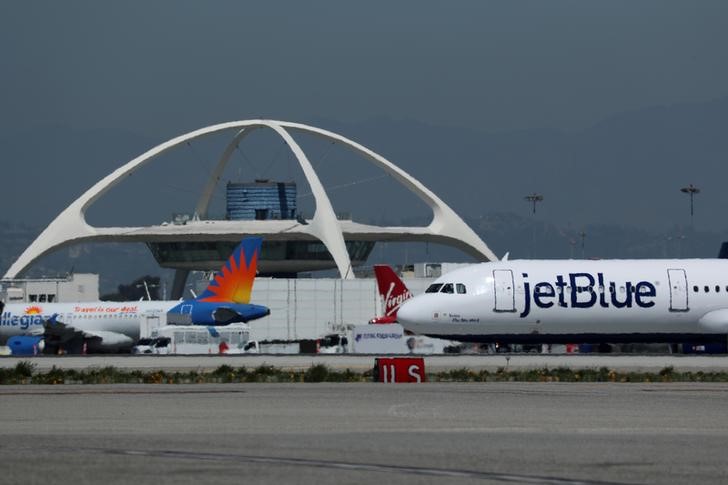© Reuters.
On Tuesday, UBS began coverage on shares of JetBlue Airways (NASDAQ:) with a Sell rating and established a price target of $5.00. The firm expressed concerns over the airline’s financial outlook, pointing to anticipated pretax losses, negative free cash flow (FCF), and high leverage extending into 2025.
The airline is expected to face challenges despite potential gains from an improving domestic Revenue per Available Seat Mile (RASM) and easing cost pressures in 2025. UBS highlighted specific headwinds for JetBlue, including significant exposure to GTF engines. This issue is projected to ground approximately 4-5% of JetBlue’s fleet in 2024, with ongoing implications into the following year. The firm estimates this could result in an Earnings Before Interest and Taxes (EBIT) loss of $120 million to $170 million annually.
Furthermore, JetBlue’s pilot contract is up for amendment in the first half of 2025, which could lead to additional costs in the subsequent years. UBS analysts believe that these risks have not been fully factored into the current stock valuation. Their analysis suggests the market is pricing JetBlue’s 2025 EBITDAR (Earnings Before Interest, Taxes, Depreciation, Amortization, and Restructuring or Rent costs) at approximately $1,025 million, while UBS estimates it to be closer to $935 million.
UBS also forecasts that JetBlue’s free cash flow will likely remain negative for the foreseeable future. Additionally, the balance sheet leverage, which is expected to exceed five times in 2023, is predicted to increase in the near term, limiting the airline’s profit and loss flexibility. Based on these assessments, UBS sees more potential downside than upside at the stock’s current trading levels.
This article was generated with the support of AI and reviewed by an editor. For more information see our T&C.
